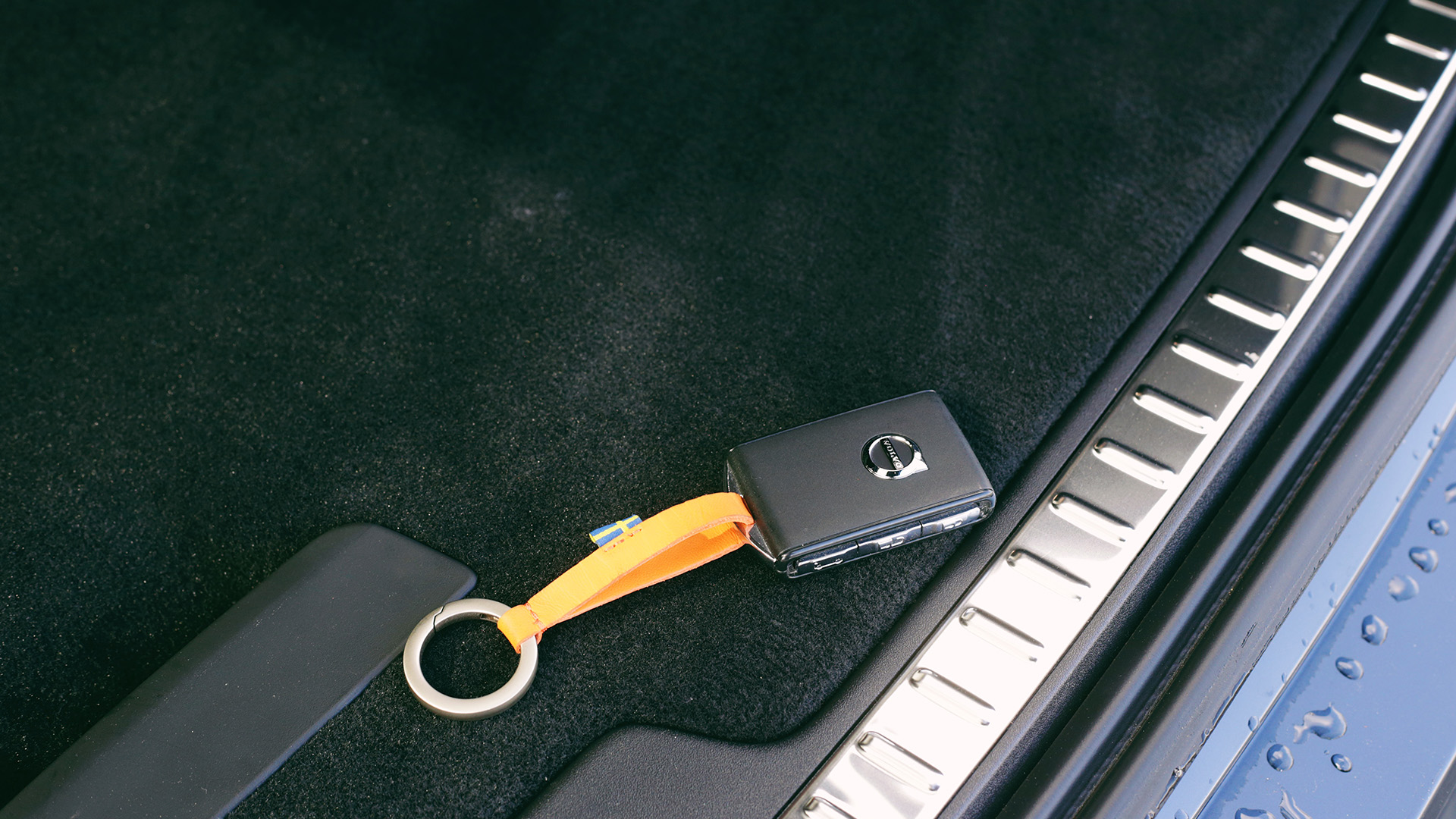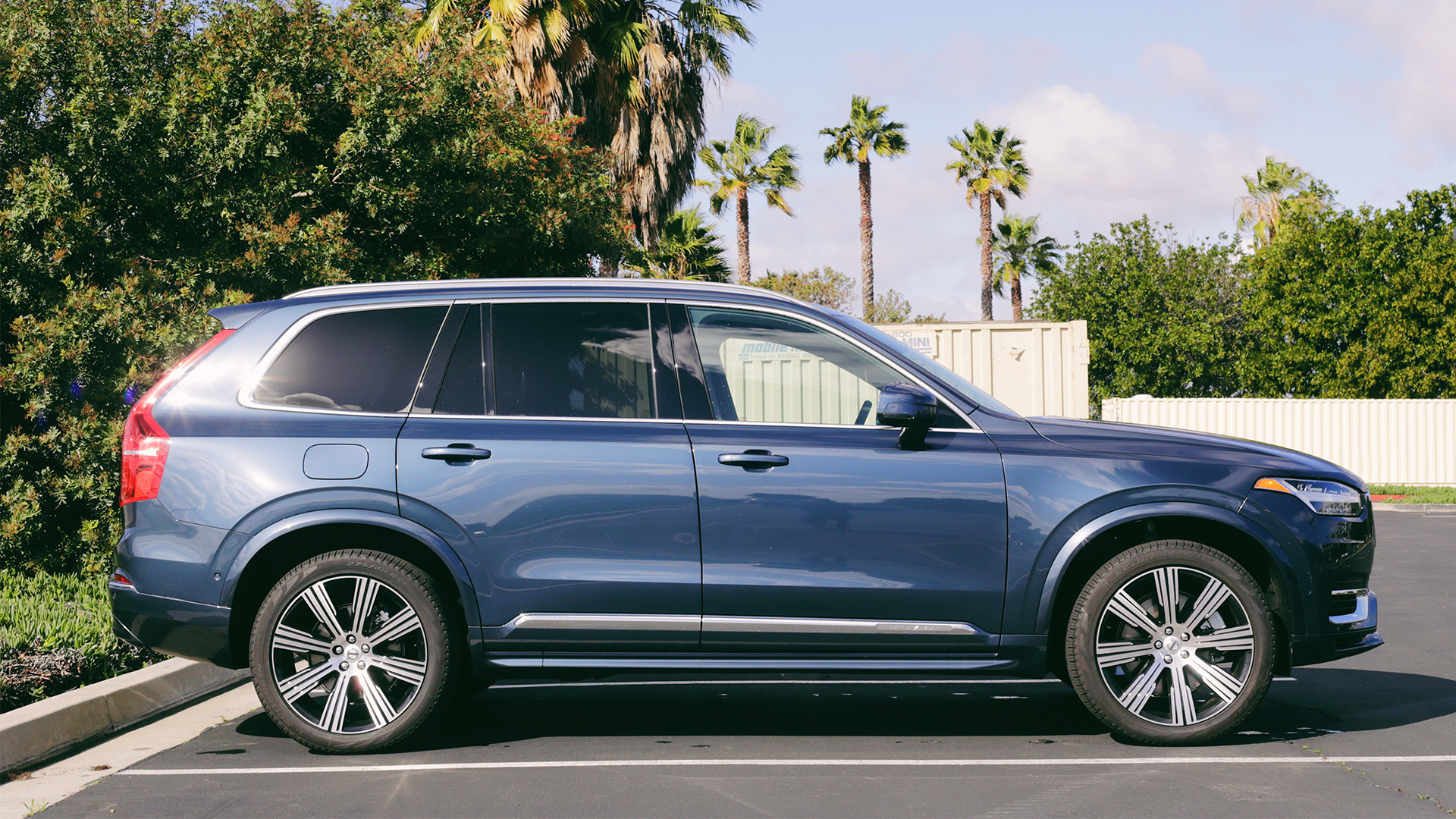As we progress further towards drastically cutting carbon emissions, companies are taking substantial steps to do their part. In Volvo‘s case, the way it’s configured its powertrains and materials sourcing makes a big impact on its goal of achieving carbon neutrality by 2030, just seven short years away.
But this doesn’t mean making changes that are too drastic, especially when it comes to its renowned XC line of SUVs. In the case of the top-tier XC90, making less of an environmental impact has some solid benefits when optioned up to the Recharge plug-in hybrid trim. After driving the 2023 Volvo XC90 Recharge for a week during one of Southern California’s rainiest weeks in the past decade, it proved to be a confident, assuring step into a cleaner future that also makes few compromises when it comes to luxury.
2023 Volvo XC90 Recharge Specs
- Base price (Ultimate as tested): $79,400 ($85,495)
- Powertrain: 2.0-liter turbo four-cylinder | 18.8 kWh battery | 8-speed automatic transmission | all-wheel drive
- Horsepower: 455
- Torque: 523 lb-ft
- Curb weight: 5,194 pounds
- Seating capacity: 7
- Towing capacity: 5,000 pounds
- Cargo volume: 11 cubic feet behind third row | 65.5 cubic feet behind first row
- EPA fuel economy: 25 mpg city | 27 highway | 26 combined | 55 MPGe
- Quick take: Luxurious simplicity for the conscious consumer.
- Score: 9/10
The Basics
The XC90 is the brand’s largest and most expensive SUV, towering above the XC60 and XC40. It’s Volvo’s entry in the quite-crowded mid-size luxury SUV segment, sporting four doors and seven seats, all pulled along by a surprisingly tiny powertrain—more on that later. (Spoiler alert: It’s impressive)
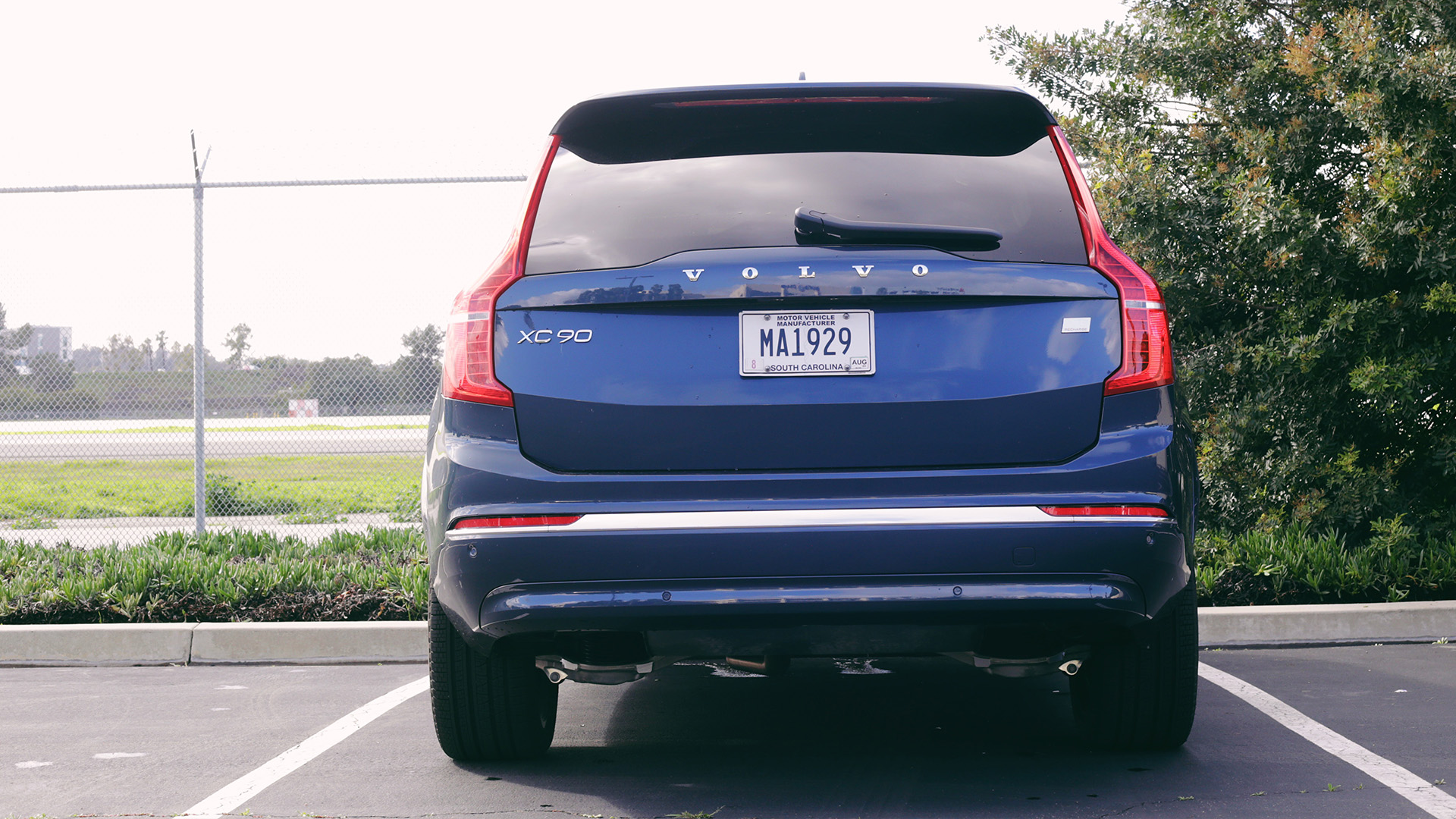
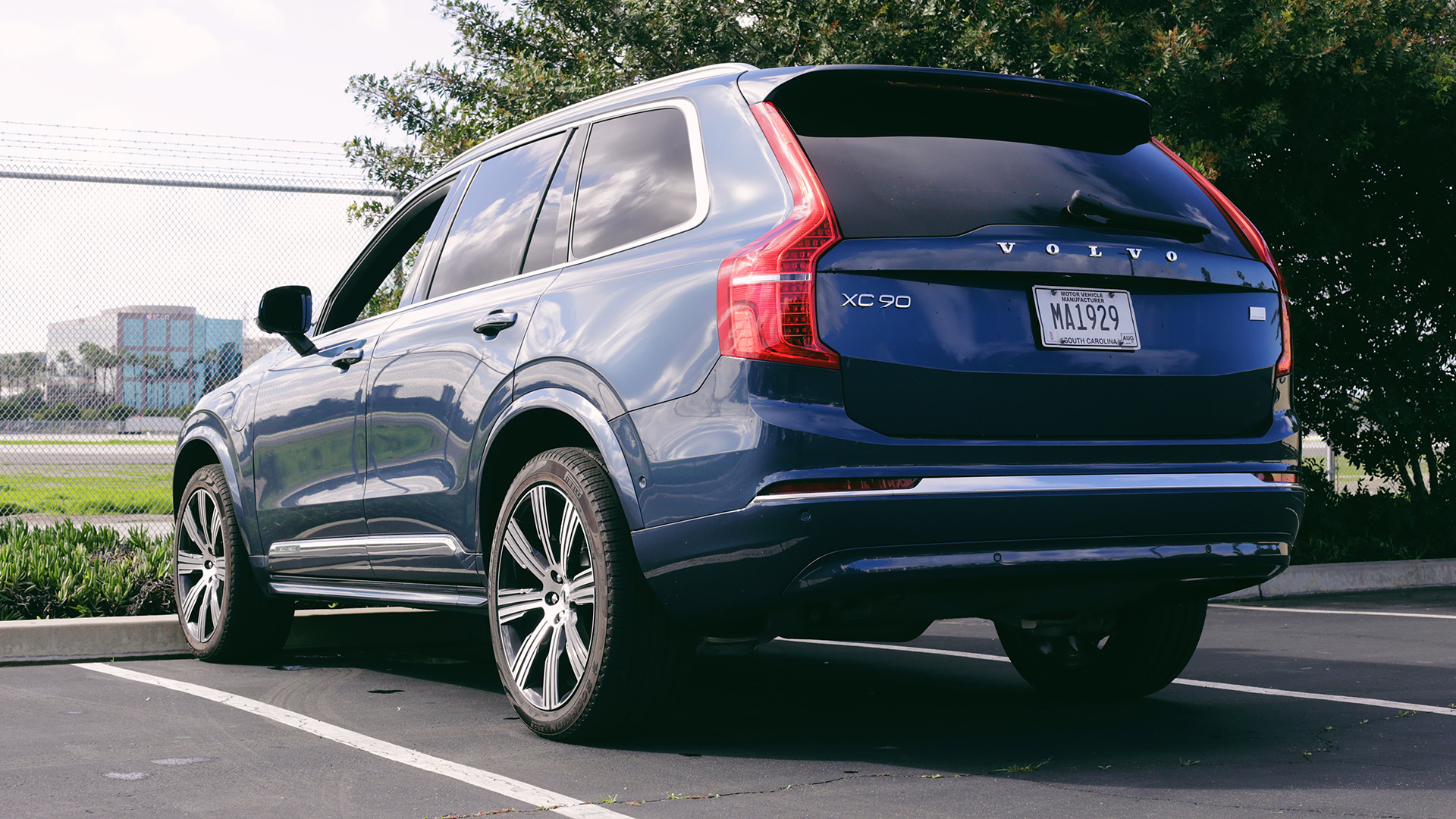
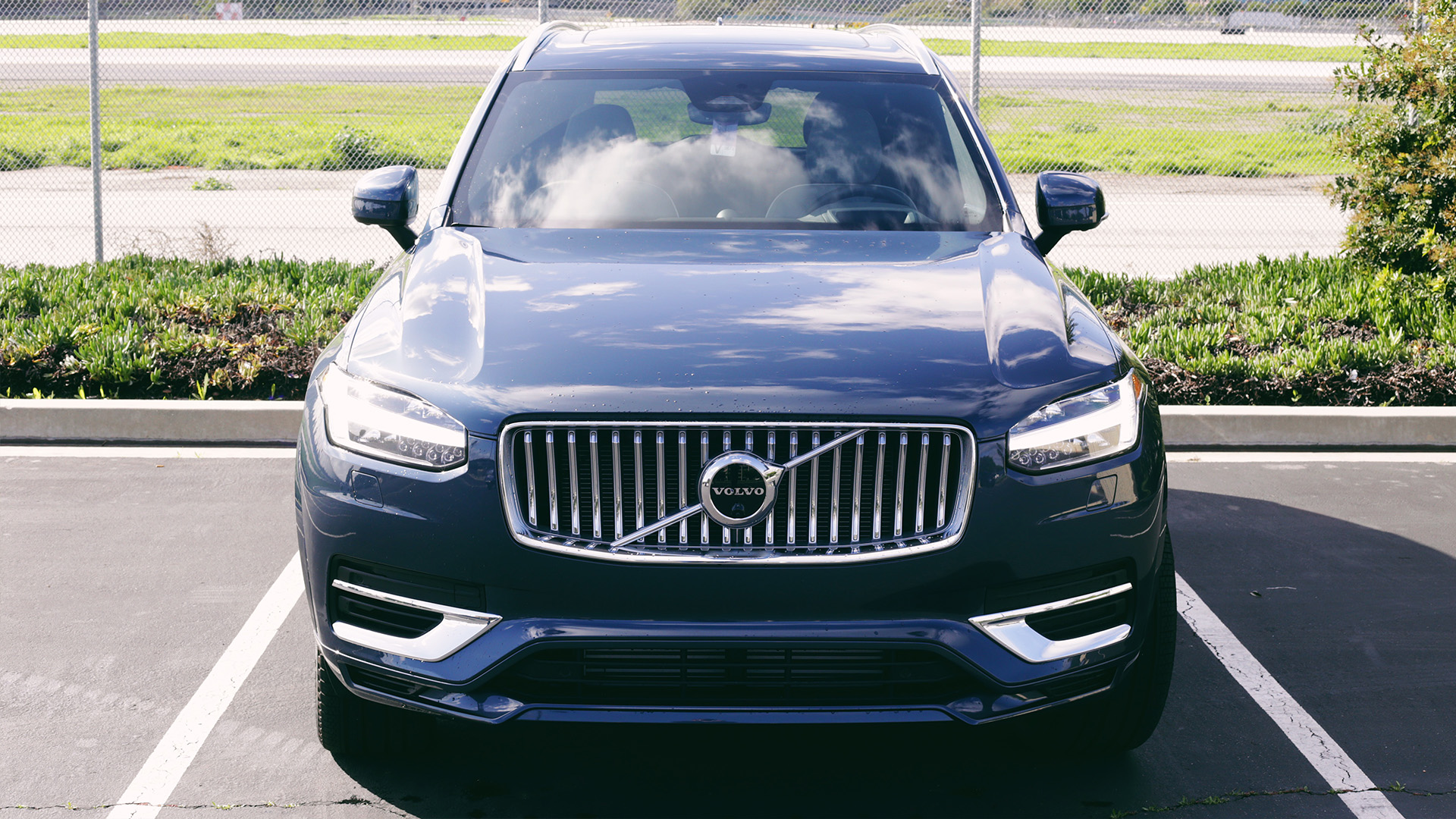
Volvo‘s current design language is quite beautiful, with the XC90 being a prime example. Its simple and elegant exterior is nicely accented by sharp LED headlights, just the right amount of grille for its size, muscular lines abound, and even a handsome set of alloy wheels. It seems like Volvo’s always done well at understated good looks, and I’m glad it’s something the XC90 does not stray from
Inside, the handsome and understated looks continue. While other automakers have embraced the massive-screen life and thus cleaned up a lot of clutter, Volvo does it best with an easy-to-figure-out nine-inch center touchscreen, minimal switchgear on the center console, and clean lines throughout.
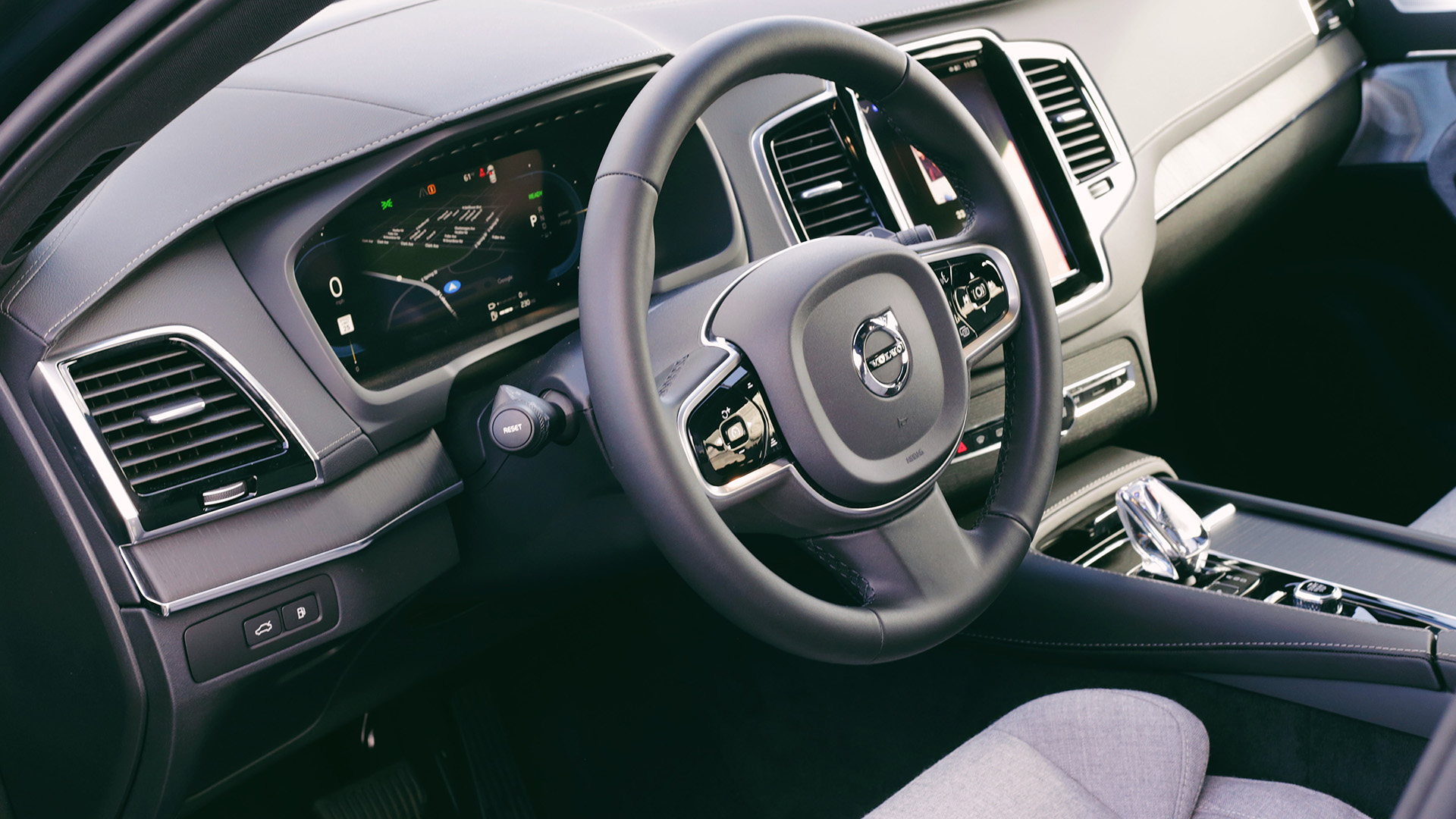
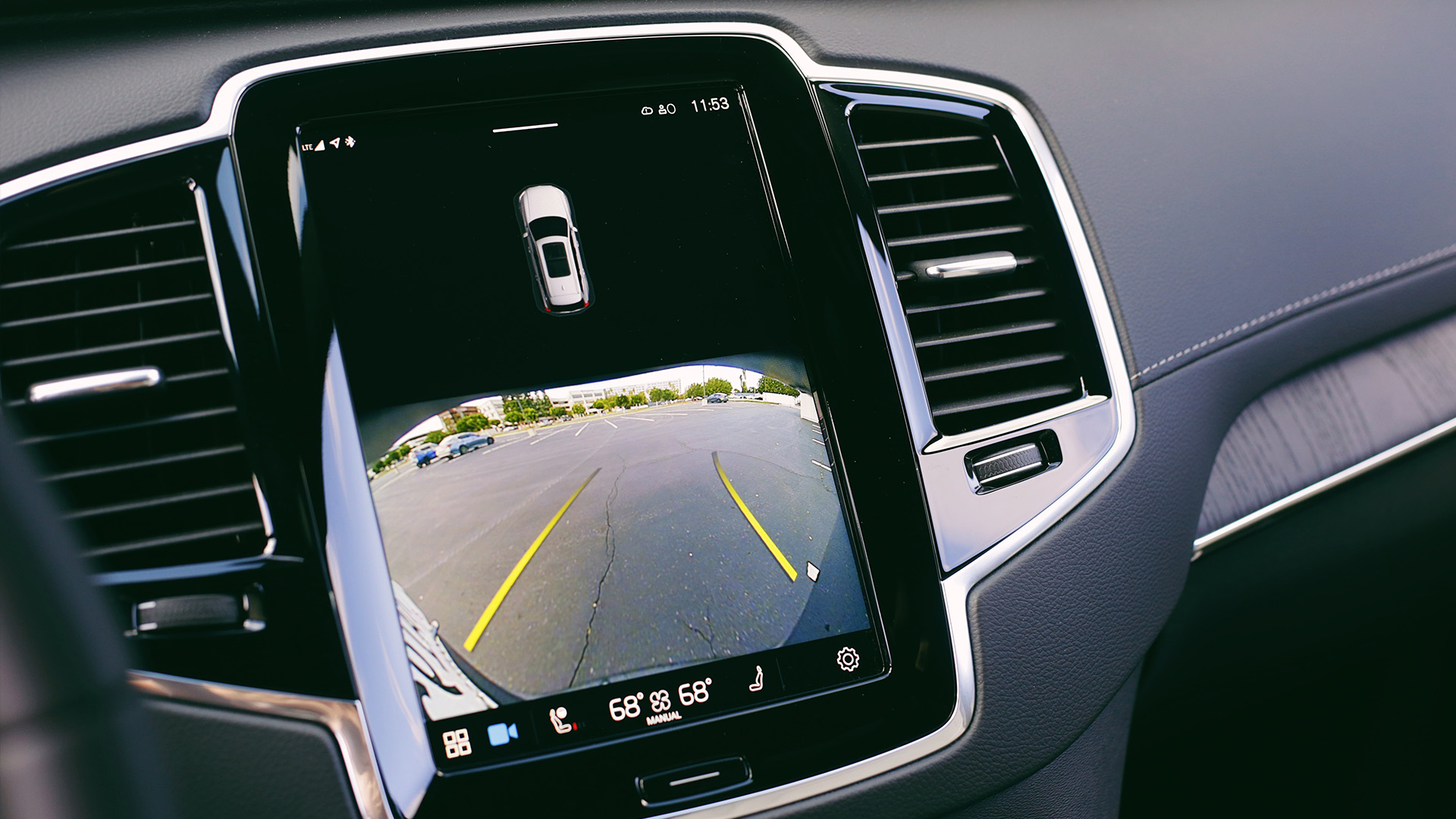
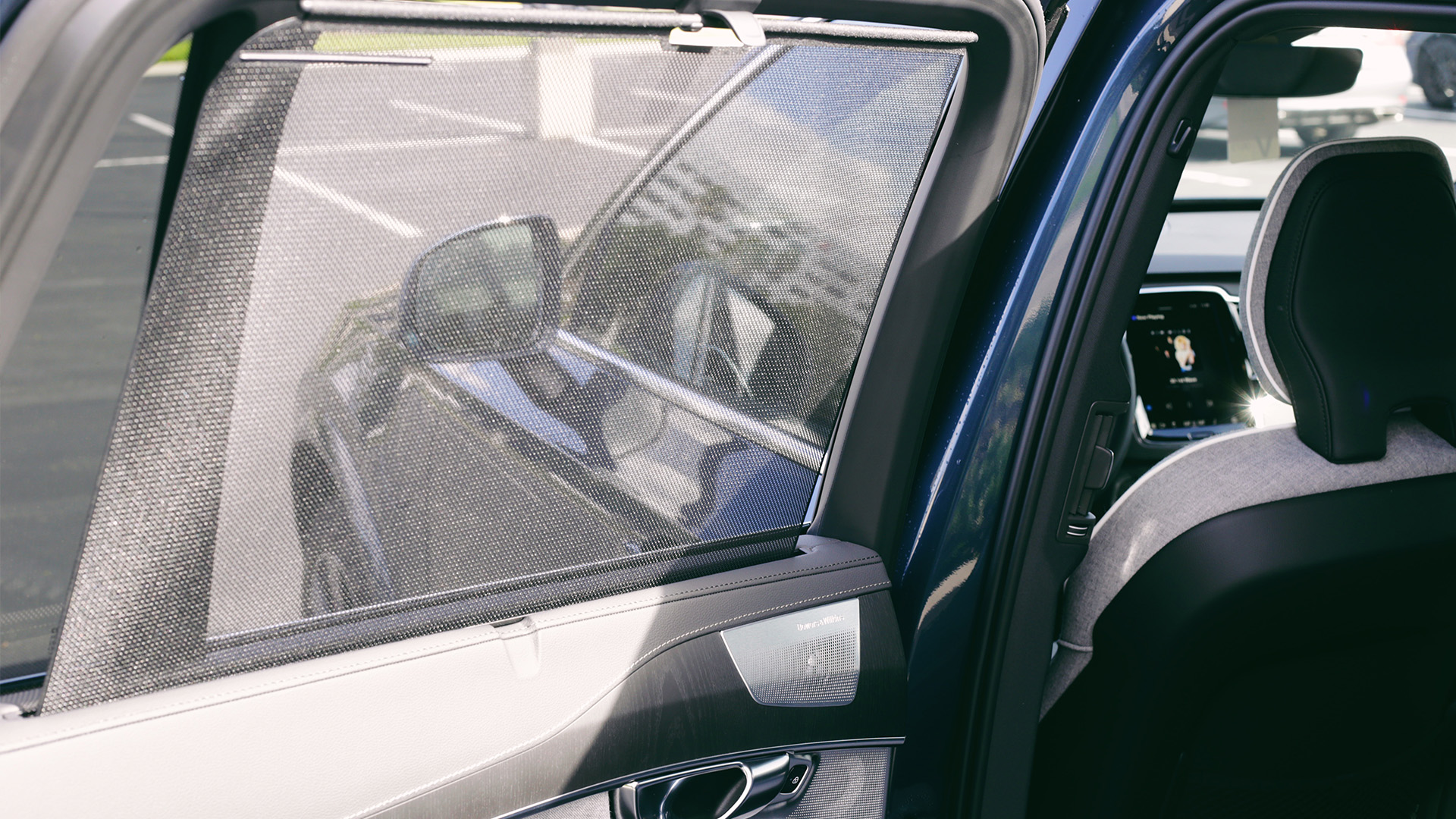
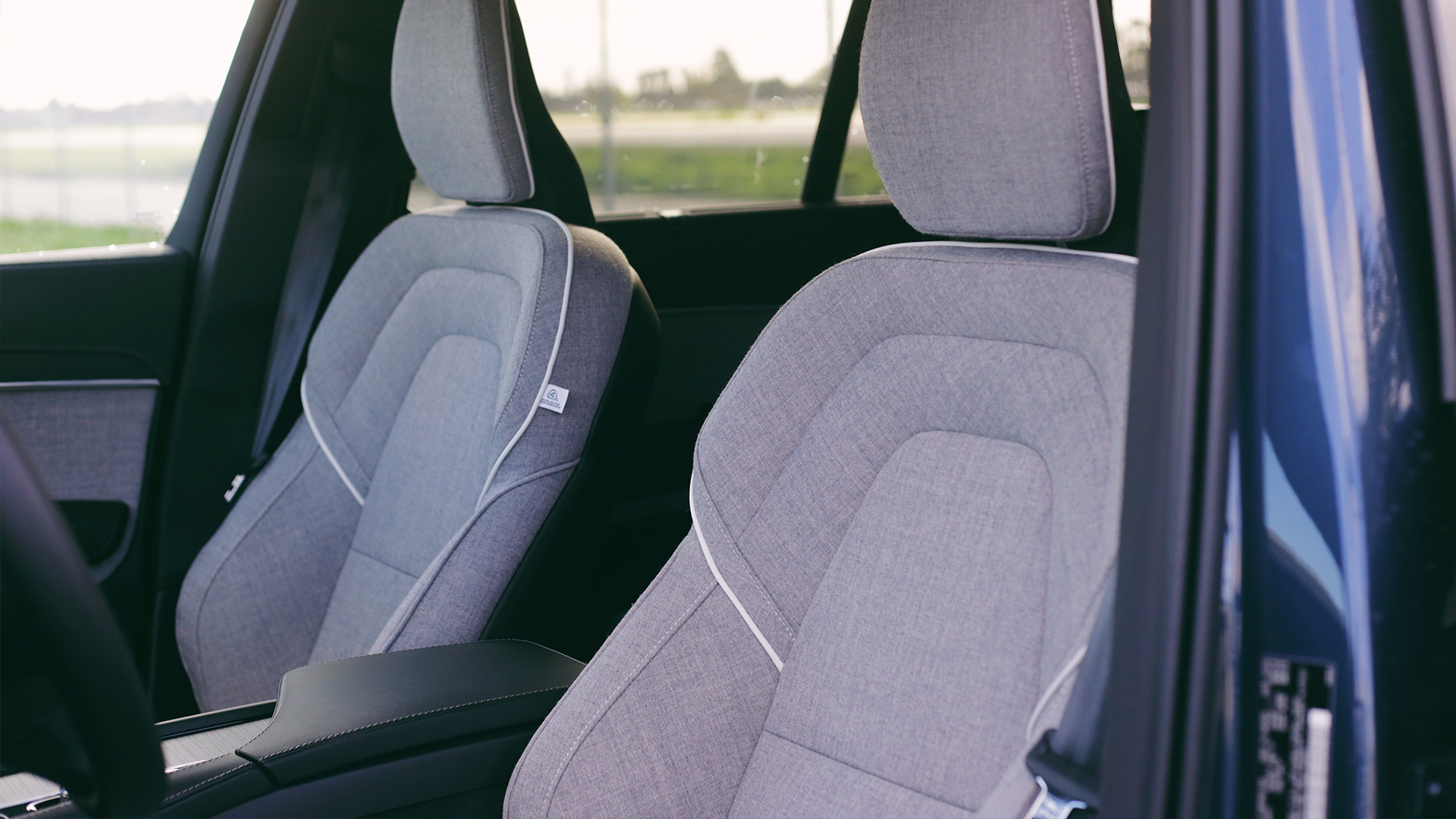
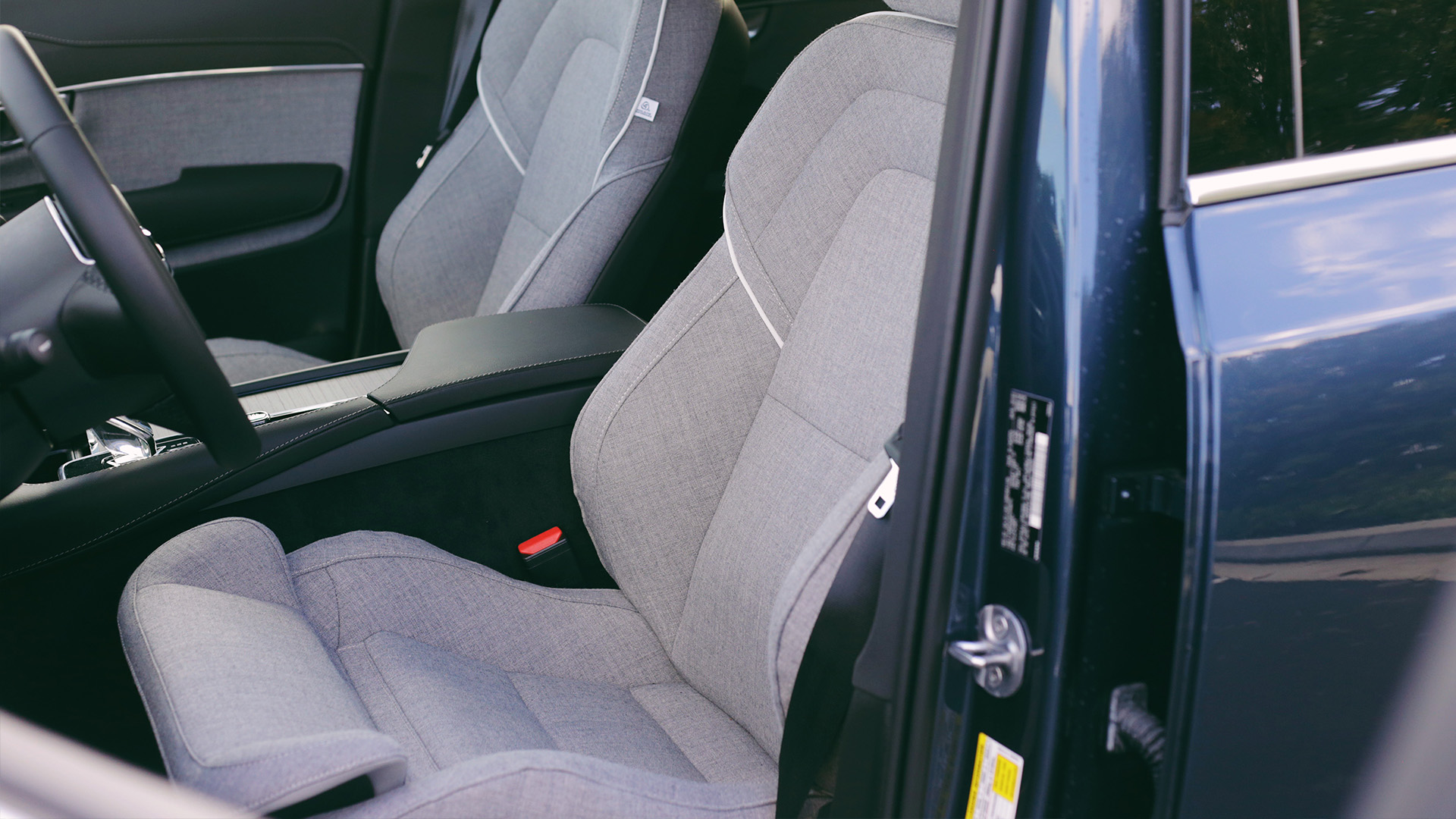
My favorite interior feature by far was an array of immensely comfortable, heated wool blend seats. They’re a tad on the firm side, but in a good way—it’s weird to compare a luxury SUV’s seats to well-fitting racing seats, but the concept of evenly dispersing body weight to extinguish pressure points is definitely shared. They also had a lot of tilt and can accommodate any size of human, including, refreshingly, awkward-dimensioned tall folks like myself.
Opting for the wool blend seats over perforated leather means no seat venting or power-adjustable side support, but I didn’t find myself missing those things over the wool’s overall more comfortable texture. Though, perhaps I’d be wishing for the former in the heat of summer.
What won Favorite Interior Feature Runner-Up was the substantial-feeling, satisfying-to-use, and just plain cool Swedish crystal gear selector.
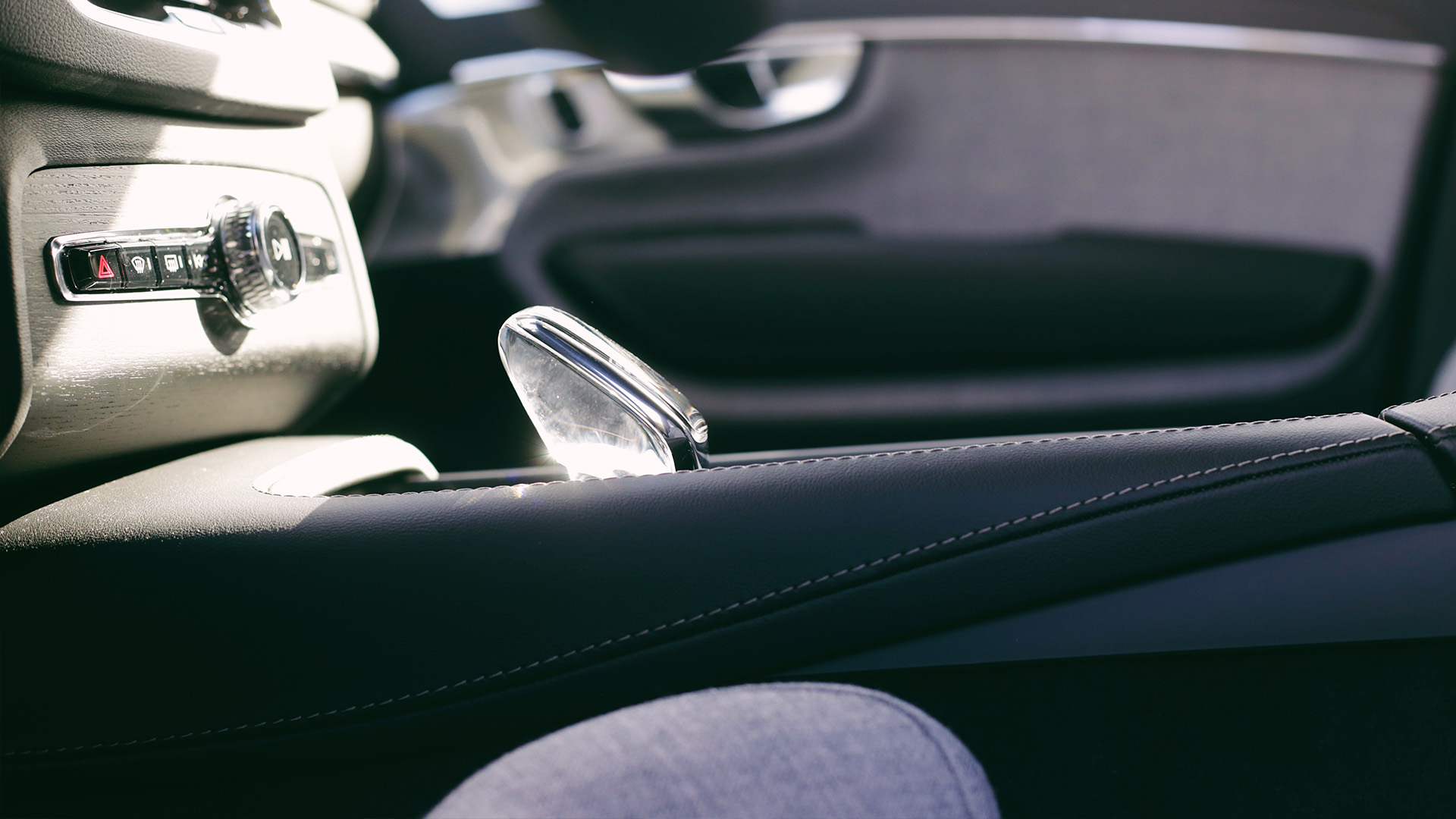
As far as internal combustion propulsion goes, the 5,190-pound XC90 sports just a turbocharged 2.0-liter inline-four that makes 312 horsepower and 295 lb-ft of torque. Alone, this engine is comically small under the hood. However, combining it with the AC motor’s 143 hp and 228 lb-ft bumps total output to 455 and 523, respectively, more than adequate for this SUV’s generous dimensions. The electric motor drives the rear wheels, whereas the 2.0-liter sends power exclusively to the fronts.
Driving the Volvo XC90 Recharge
The first thing I noticed about the XC90 was its ability to do quiet serenity incredibly well. The well-insulated interior barely let any exterior noise in at any speed. This included the sound of its turbo-four spinning away, which makes for an odd experience—a buzzing four-cylinder in a massive mid-size SUV that absolutely rips with your foot to the floor. By the way, it hits the 60 mph mark in just five seconds; truly a solid example of how far plug-in hybrid technology has progressed.
While I quickly used up its 35 miles of electric-only range, I enjoyed its near-EV hybrid technology around town. Volvo doesn’t give us a tachometer, but there is a meter on its crisp 12.3-inch digital dash that clearly indicates when propulsion is sourced from the batteries at low speed. With a conservative right foot, I was impressed by how seamlessly the engine kicked on at city street speeds. Up until that point, it happily cruised along for quite a while using just battery power that was stocked up from regenerative braking.
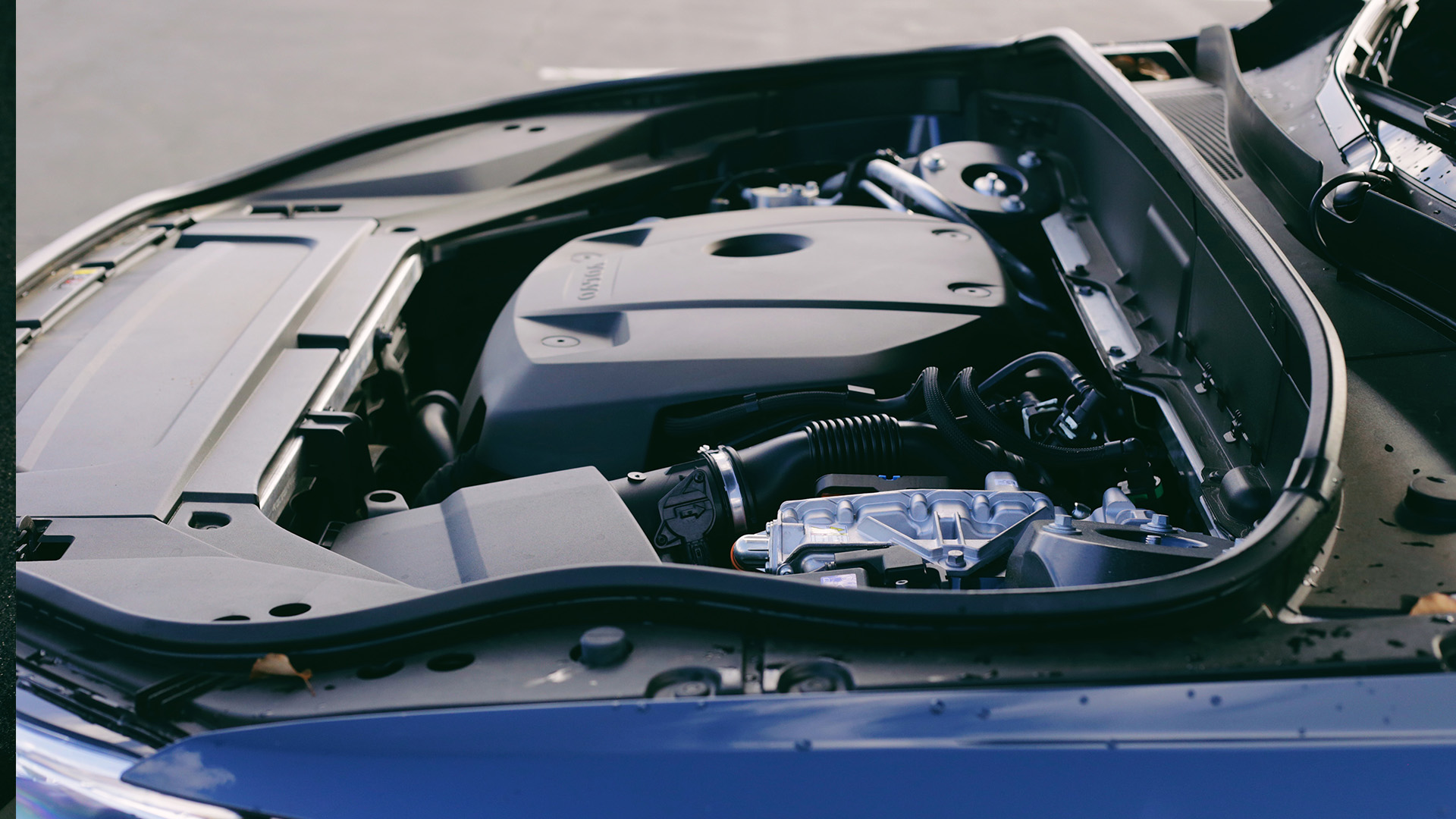
Despite the XC90’s lower base price compared to other luxury mid-size SUVs, the refinement doesn’t stop there. Its ride is an excellent mix of comfort and confidence and it even felt reasonably well-poised on Southern California’s twistier canyon roads. Its multi-link chassis combined with air suspension was the best of both worlds, and high ground clearance meant rolling up and down steep driveways was never a concern.
And yet, there was more confidence to experience. As SoCal locals know, our infrastructure is not meant for (or rather, hasn’t been kept up enough to handle) prolonged periods of heavy rain. Traveling from Long Beach to the San Fernando Valley in pouring rain on the 405 freeway, during the dark of night, might normally be considered a deathwish—between terrible drivers and massive, deep puddles that collect on the roadway—but the Volvo dealt with it all like a champ. Where smaller vehicles might hydroplane or experience some form of squirminess, the XC90 simply rolled through without a care in the world. Whenever it detected some slip, traction control remediated any concern in the blink of an eye.
I wish I had the chance to take on some snowy mountaintop roads, but you’d think I did repeated river fordings after several days of driving around in near-constant rain that kept area flooding constantly replenished. The ‘90’s sure-footedness and isolated interior helped relieve any stressful aspects of dealing with this part of the country in such conditions.
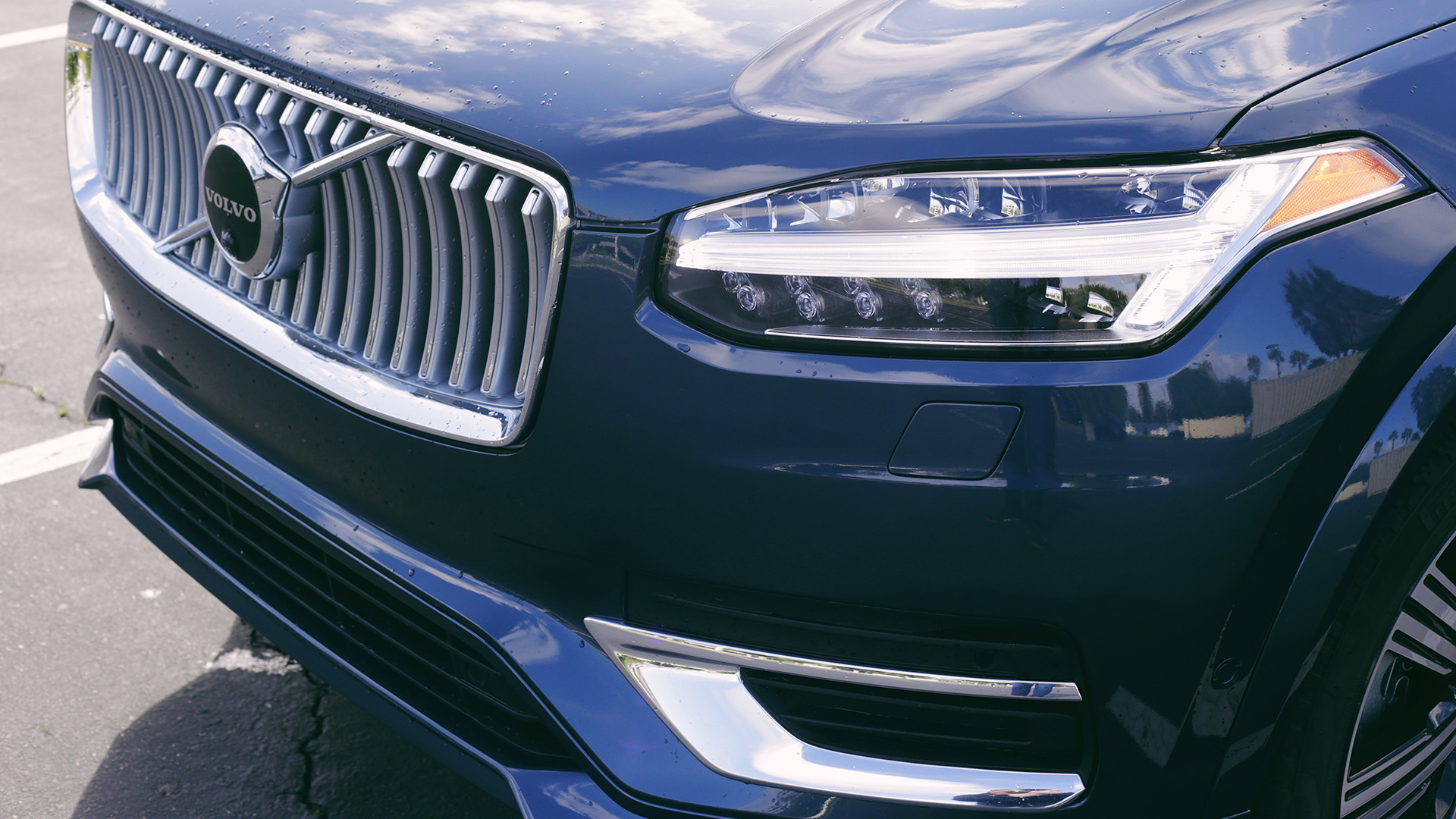
The Highs and Lows
Between the XC90 Recharge’s looks, handling, and interior dimensions, I didn’t have much to gripe about. Sure, the teeny amount of engine noise you do hear is buzzy and not really appealing, but it’s a mid-size SUV with no intentions or expectations of appealing to the enthusiast market. Material quality is top notch, as is overall comfort—this is all that most consumers would be perfectly happy with day-in, day-out, in all weather, and at any prolonged amount of seat time.
And then, there’s the fact that it’s a seven-passenger SUV. The third row is awfully small for adults, but they’re quite easy to drop to expand cargo space, and the rear air suspension can be raised and lowered to help make loading and unloading cargo a tad less taxing.
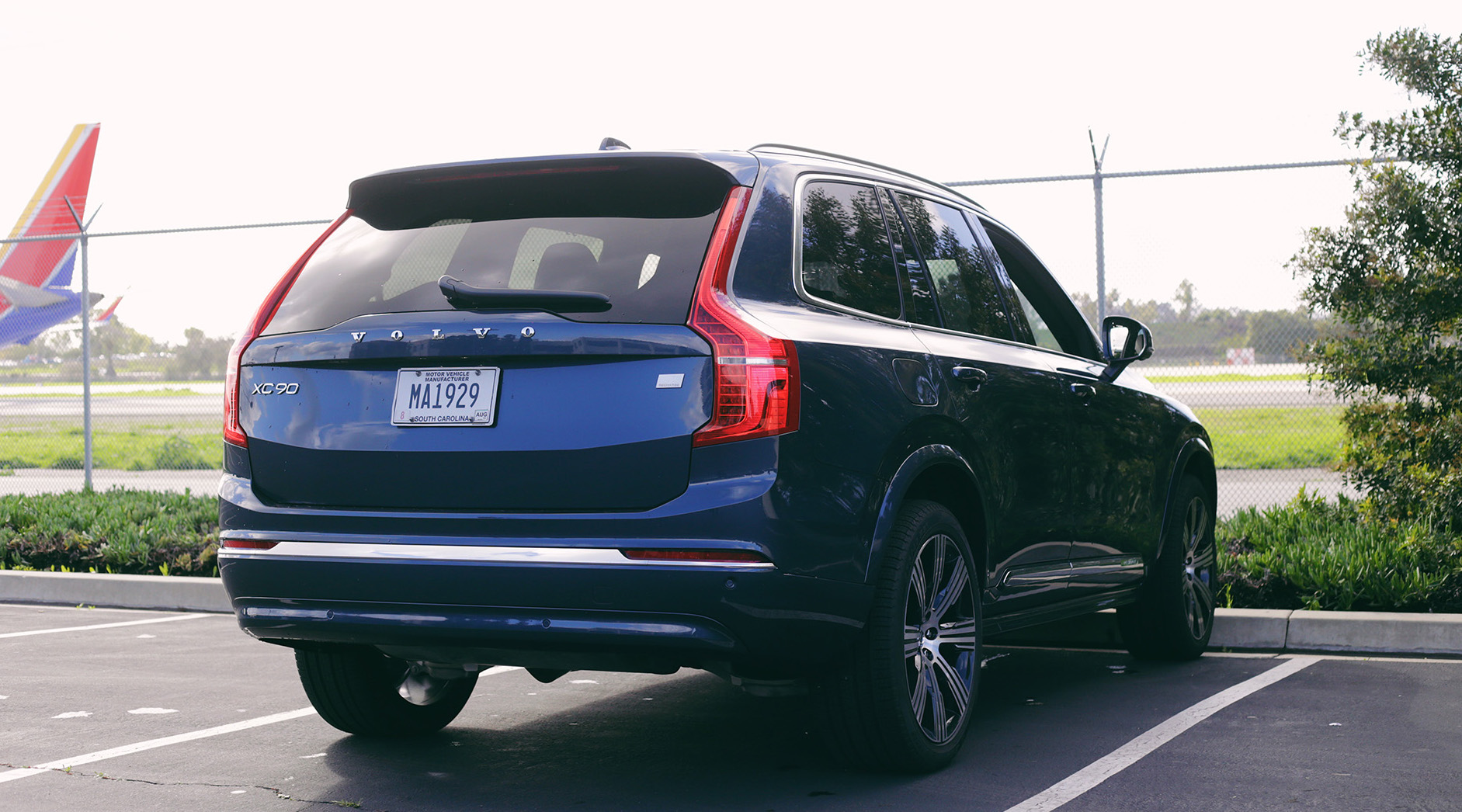
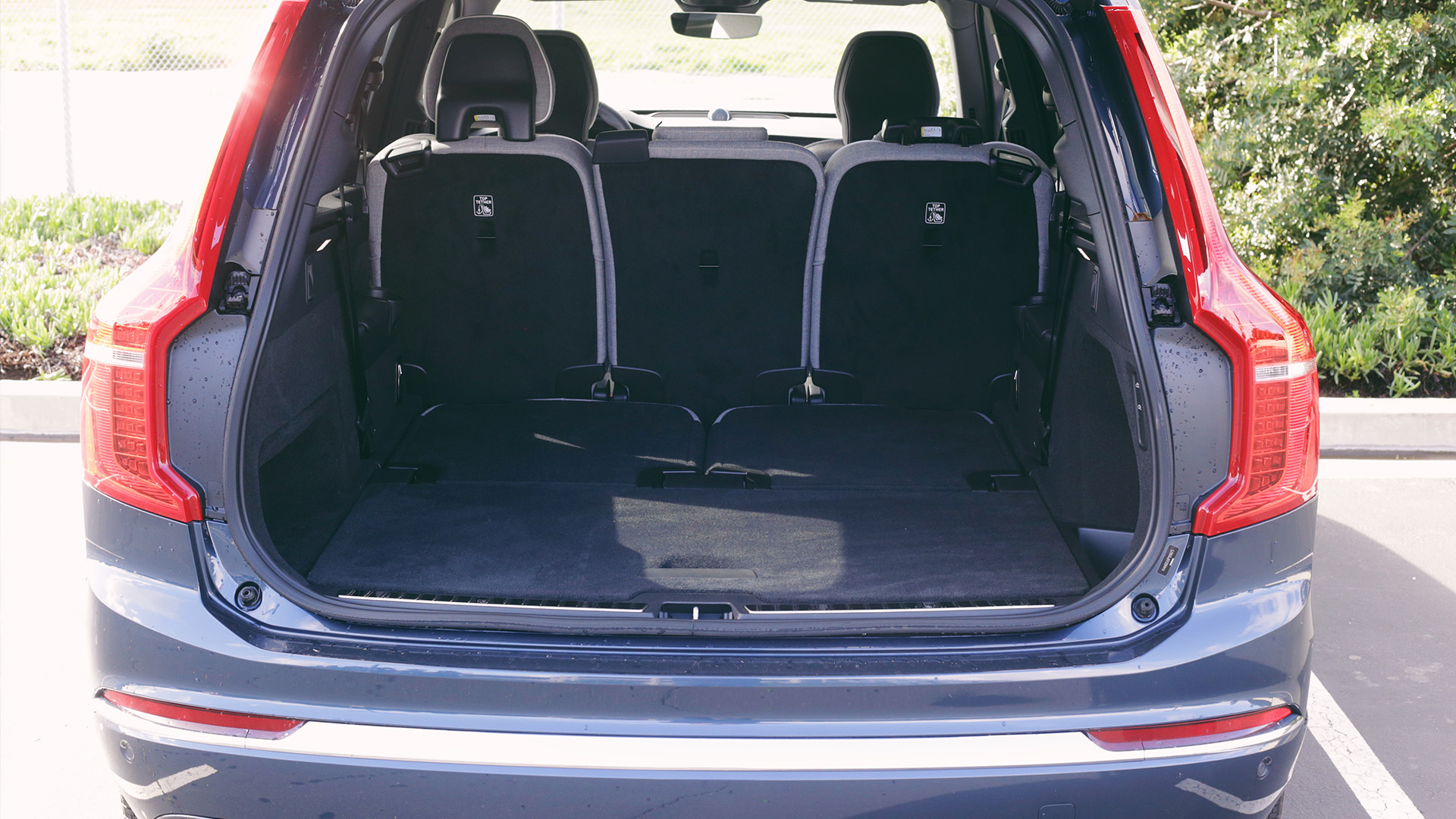
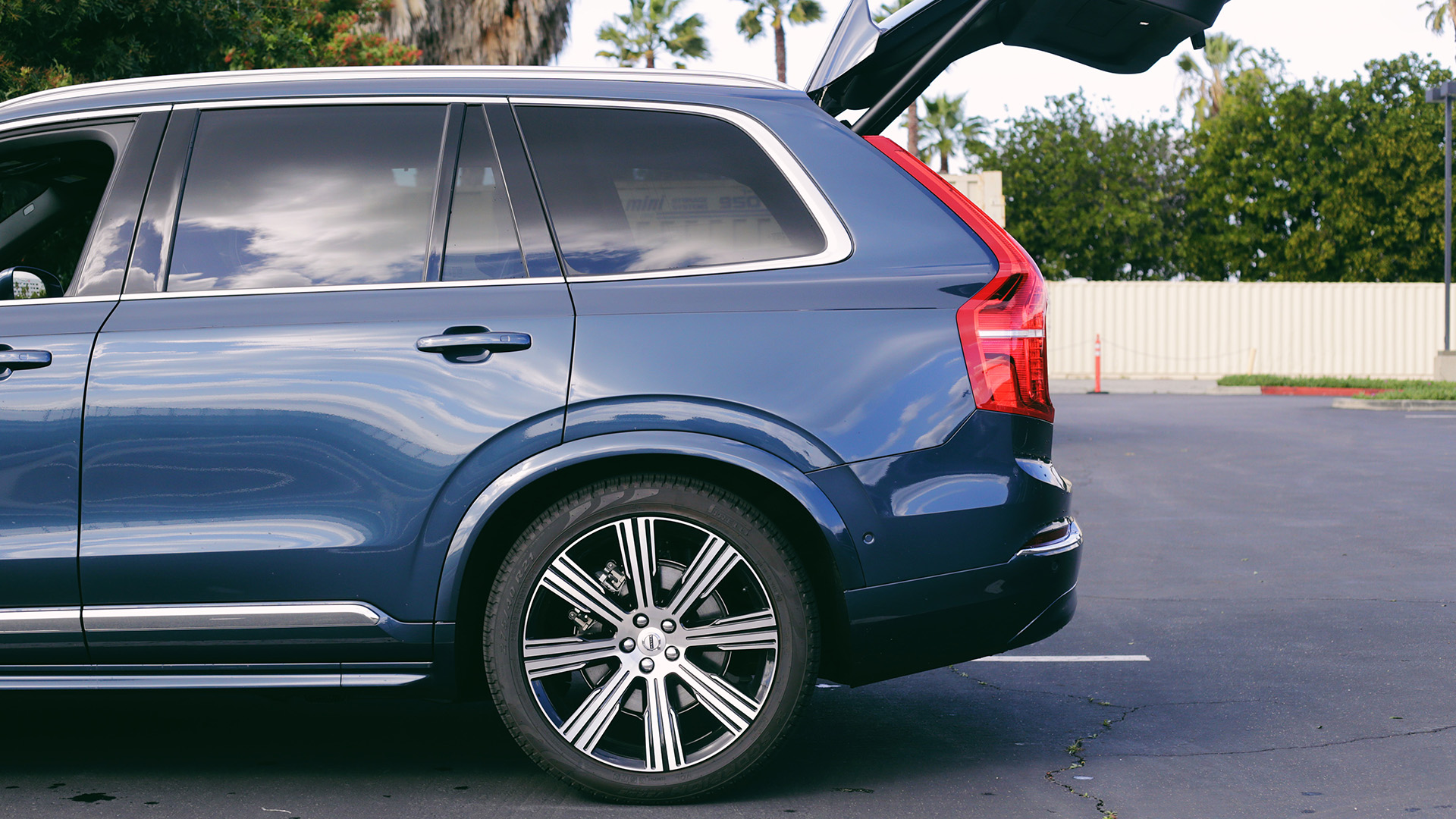
However, I did have a few qualms when it came to the XC90’s user interface and advanced driver assistance technology. During my short week with the Volvo, I had to hard reset (as in, press the button and hold) its nine-inch Google-integrated center infotainment screen twice, once due to the pop-up volume window not going away, another due to the Google Maps navigation screen thinking I was parked on a highway on-ramp. While it only took a minute or two to fully reset, it was still annoying. Towards the end of my test, the car did notify me that it was ready for an over-the-air update which might’ve resolved this, but for anyone who’s perhaps a little wary about software updates becoming more and more commonplace, this could be annoying. The update was estimated to take two hours as well, so it’d also be a matter of factoring this into one’s daily schedule. Though, leaving it to do its thing overnight wouldn’t really be an issue.
When it came to advanced driver assistance, Volvo’s system was nothing to write home about. Radar cruise control operated in a slightly awkward, unsure-of-itself manner that even an entry-level Lexus would outperform, and lane centering was more of a mild suggestion while cruising along at night on the highway. Still, its rear cross-traffic alert worked quite well, as did its 360-degree camera.
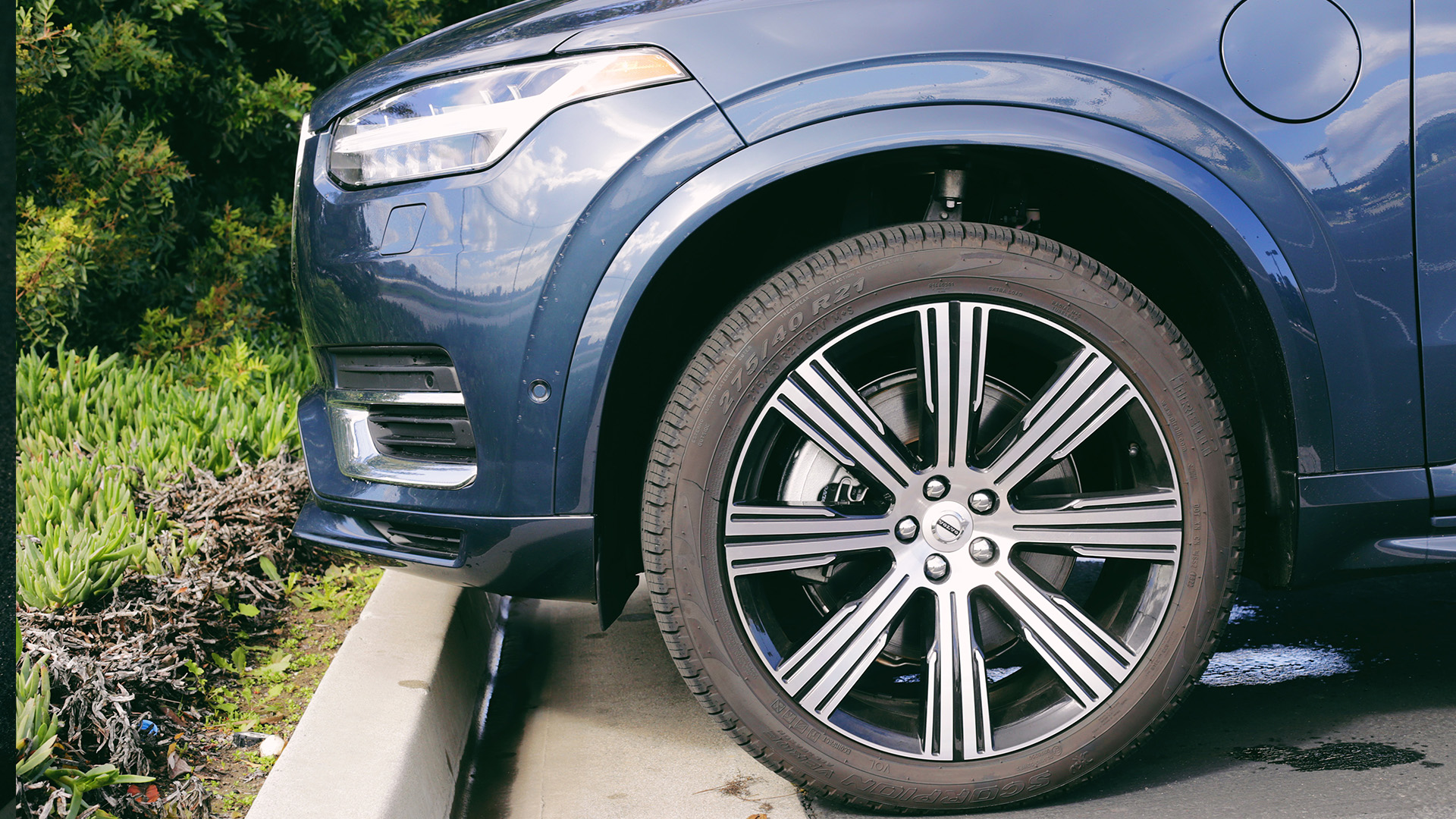
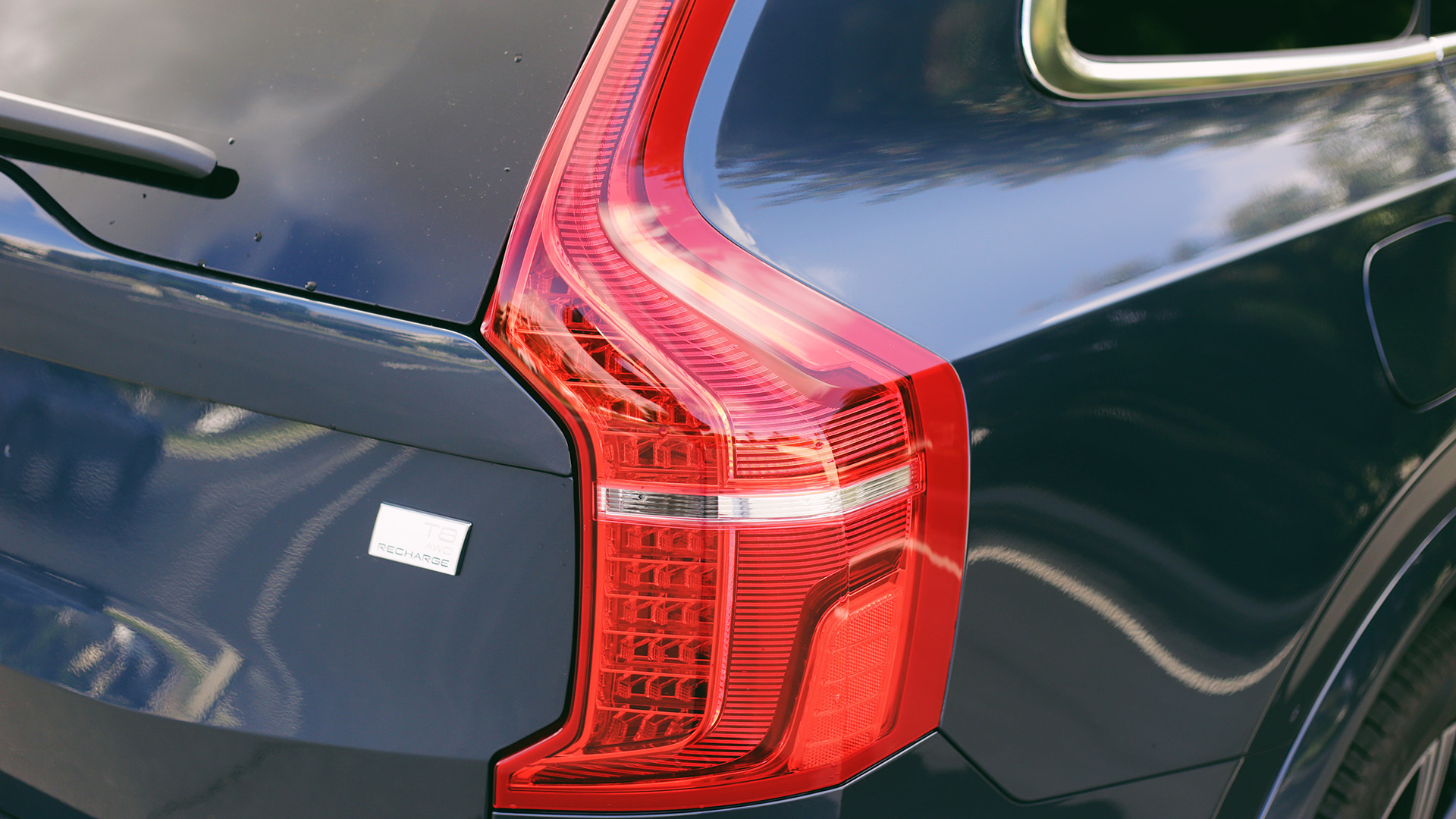
Volvo XC90 Features, Options, and Competition
To get into a 2023 Volvo XC90 at the absolute, non-hybridized ground floor, it’ll cost just $57,095 after destination. However, the trim I had was the brand’s most expensive way to outfit this model. In the XC90 trim hierarchy, Volvo’s really outdone itself with six—count ’em six—trims, starting with the Core, Plus, Ultimate, Recharge Core, Recharge Plus, and finally this top-dog Recharge Ultimate.
The Recharge Ultimate starts at $79,400, but after adding on its Bowers and Wilkins sound system for $3,200, air suspension for $1,800, and a $1,095 destination charge, it reaches a not-cheap $85,495. Though, considering its luxury appointments, excellent ride, performance, and fuel economy, it seems competitive against other European automakers’ offerings.
For instance, the BMW X5, Porsche Cayenne, and Mercedes-Benz GLE all have higher base prices. The Porsche Cayenne E-Hybrid, perhaps its most direct competitor, starts at $86,500, returns poorer fuel economy, and sports a marginally quicker zero-to-60-mph time. A comparable X5 xDrive45e is marginally slower to 60 mph, has slightly less EV-only range, and worse overall fuel economy. Though, the Bimmer with similar equipment seems to cost nearly $10,000 less than the Volvo.
Fuel Economy
With higher fuel economy figures than all of its competition, this torquey four-cylinder brute has a lot going for it. Then, the usage of wool blend on the inside rather than leather is what Volvo calls a “respectful connection to natural materials,” which, PR-talk aside, is definitely appealing to anyone concerned with materials sustainability.

Value and Verdict
Besides some mild tech annoyances, the 2023 Volvo X90 Recharge is a solid contender in its class. It’s comfortable, powerful, spacious, and a generally pleasant place to hang out in. For anyone after mildly understated yet elegant looks inside and out, it’s an option that’s hard to pass up. It might make a very uninspiring sound getting up to speed, but the amount of torque shove that you synchronously experience is anything but.
Overall, it allows one to have the best of both worlds: solid efficiency and good performance. It also stands out from the crowd from the armies of Benzes and BMWs rolling around the roads. Plus, what other automaker offers seats that are as comfortable as a well-worn Pendleton sweater?
